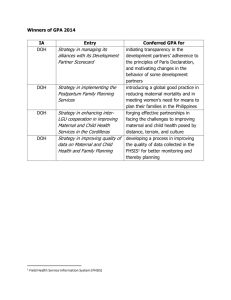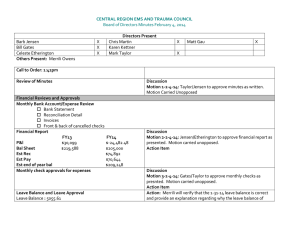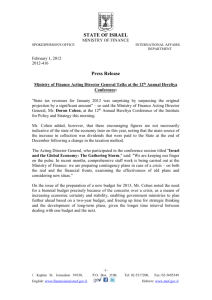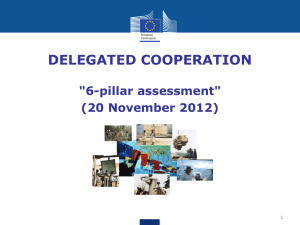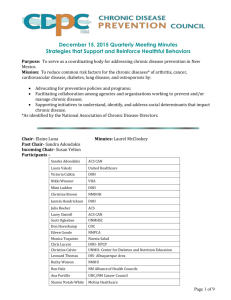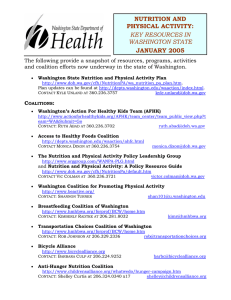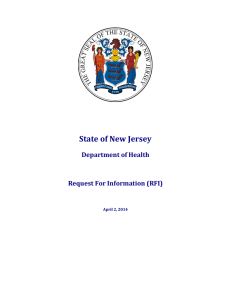130530 Food Safety
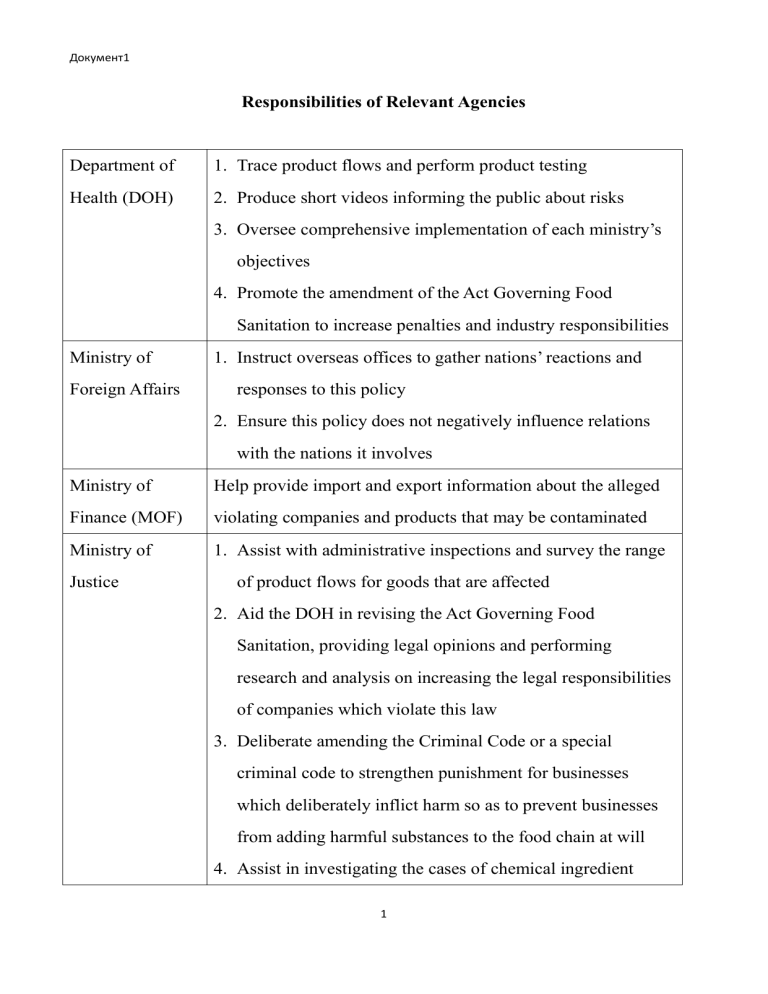
Документ1
Responsibilities of Relevant Agencies
Department of
Health (DOH)
Ministry of
Foreign Affairs
Ministry of
Finance (MOF)
Ministry of
Justice
1.
Trace product flows and perform product testing
2.
Produce short videos informing the public about risks
3.
Oversee comprehensive implementation of each ministry’s objectives
4.
Promote the amendment of the Act Governing Food
Sanitation to increase penalties and industry responsibilities
1.
Instruct overseas offices to gather nations’ reactions and responses to this policy
2.
Ensure this policy does not negatively influence relations with the nations it involves
Help provide import and export information about the alleged violating companies and products that may be contaminated
1.
Assist with administrative inspections and survey the range of product flows for goods that are affected
2.
Aid the DOH in revising the Act Governing Food
Sanitation, providing legal opinions and performing research and analysis on increasing the legal responsibilities of companies which violate this law
3.
Deliberate amending the Criminal Code or a special criminal code to strengthen punishment for businesses which deliberately inflict harm so as to prevent businesses from adding harmful substances to the food chain at will
4.
Assist in investigating the cases of chemical ingredient
1
Документ1 suppliers and ingredient researchers to determine whether they violated relevant laws and regulations. Those who were involved in criminal acts should be dealt with strictly according to the law.
Environmental
Protection
Administration
(EPA)
Department of
Consumer
Protection,
Executive Yuan
Deliberate the amendment of the Toxic Chemical Substances
Control Act to ensure the complete provision of information, including chemical substance registration records, facts on acute and chronic toxicity as well as data on organ toxicity and animal toxicity
1.
Handle consumer disputes and appeals
2.
Communicate with and inform consumers and consumer protection groups about risks
3.
Help local consumer protection agency officials explain to the public the reasons for this plan and the actions each administrative organ should take
Ministry of
Economic Affairs
1.
Cooperate with other ministries to gather information on maleic anhydride products’ domestic registrations and
(MOEA) importers; request those companies to provide the list of starch manufacturers and dealers to which they have sold their products
2.
Together with the DOH, hold a forum between starch industry-related business, government and academic figures to discuss ways to strengthen company guidance and education
3.
Investigate whether certain products (such as Japanese-style
2
Документ1 oden ) which receive Good Manufacturing Practices authentication are contaminated
Mainland Affairs Collect the related measures of mainland China, Hong Kong
Council and Macao and provide them to the DOH for reference
Council of
Agriculture
EPA, Council of
Labor Affairs
(CLA), MOEA,
DOH
MOF, MOEA,
DOH
Investigate whether certain products which receive Certified
Agricultural Standards authentication are contaminated
The CLA has already established a database and cross-agency platform dedicated to chemical substances circulated domestically. Building on that foundation, the agencies will, in line with their own responsibilities, create a list of controlled substances, quickly legislate registration reports and set up a retroactive tracking system. They will manage these through a platform for mutual articulation and information sharing.
Investigate companies producing regulation-violating products.
These companies must earn a government-certified laboratory’s certificate for passing inspection before they can sell their products overseas. The relevant regulatory scope of these products and their serial numbers will be verified by the MOF,
MOEA and DOH.
3
